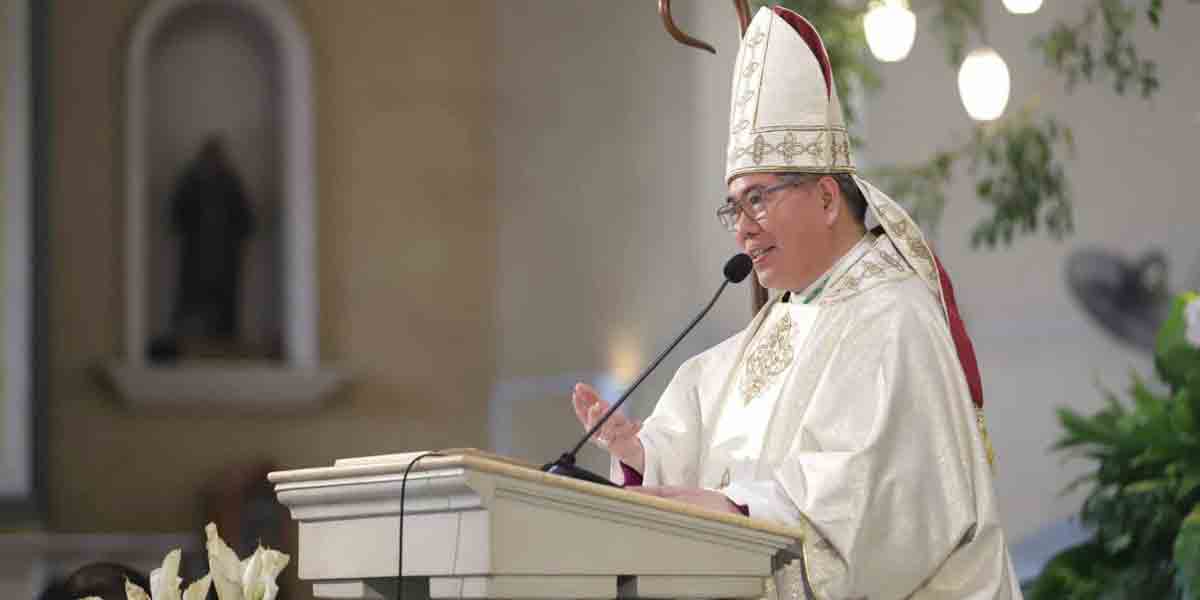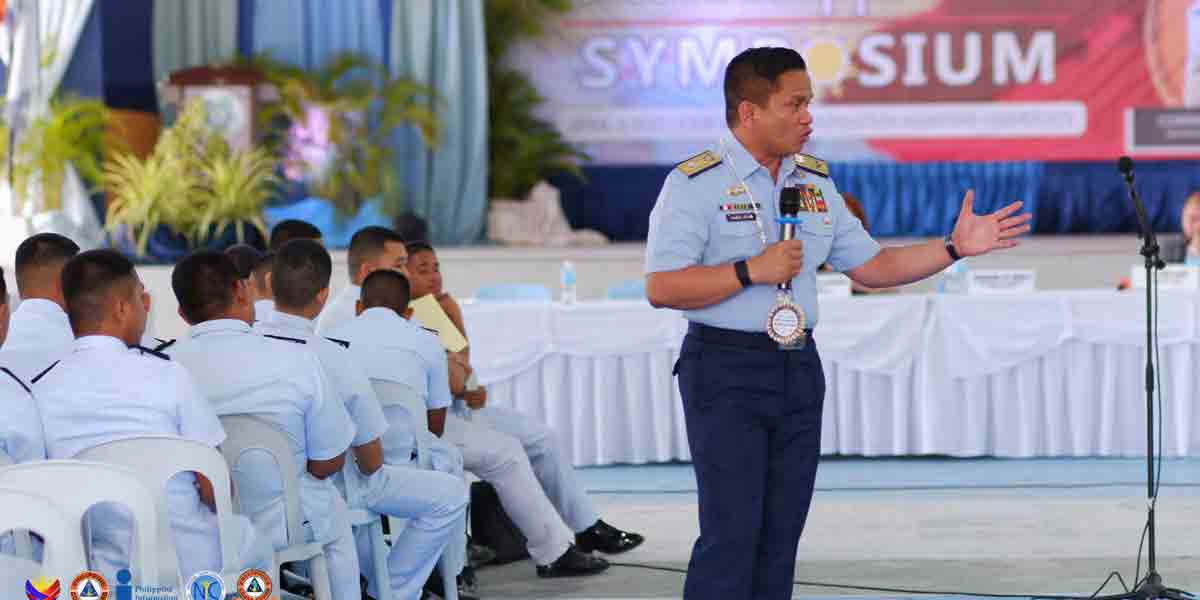By Jason Castaneda
Philippine President Ferdinand Marcos Jr kicked off the new year with a massive shake-up of the country’s security services, a surprise reshuffle that is ringing alarm bells about his government’s future stability.
In a move that appeared to catch many top officials by surprise, the Filipino leader reappointed General Andres Centino as Armed Forces of the Philippines (AFP) chief of staff, replacing Lieutenant General Bartolome Bacarro who had replaced Centino shortly before his retirement last year.
Shortly after, Department of National Defense (DND) officer-in-charge Jose Faustino Jr, a former top military general, resigned in apparent protest, saying he “cannot allow the AFP’s reputation to be tarnished, maligned or politicized.”
The switch at the AFP’s top-most echelon has revealed internal fissures within the wider defense establishment, further fueling rumors of a possible coup and destabilization plots against Marcos Jr’s government.
A week earlier, the Philippine National Police (PNP) faced its own shake-up when Department of Interior and Local Government (DILG) Secretary Benjamin Abalos called on hundreds of police generals and officers to resign amid reports of widespread corruption in the country’s law enforcement agencies.
But far from bolstering Marcos Jr’s credentials, the ongoing security services purge has instead deepened criticism and raised new concerns about his perceived weakness and indecisiveness.
In his first six months in office, the son of a former Philippine dictator has seen the departure of multiple cabinet members, including his former confidante and executive secretary Victor Rodriguez, who was allegedly at the center of intrigues and divisions within the administration in recent months.
Just days after the inexplicable shutdown of the country’s main international airport in Manila, which disrupted hundreds of flights earlier this year, rumors of a coup plot began to spread in the chatrooms used by Philippine security services.
Last week, a memorandum under the PNP’s apparent letterhead, allegedly signed by Police Colonel Alikhan Yusop, declared “full alert status” for its personnel on January 7 “in view of the resignation of all personnel” under the Department of National Defense in Camp Aguinaldo, which is located near the PNP’s headquarters.
Accordingly, police forces were ordered to monitor the military personnel in anticipation of potential destabilization actions as information about the impending military chief of staff shake-up began to circulate online.
Shortly after, PNP spokesperson Jean Fajardo disowned the memorandum, maintaining that the “alert status” was in preparation for contingencies during the upcoming Feast of the Black Nazarene (Nazareno) religious event on January 9, which saw the participation of as many as two million devotees.
“What we officially declared is a heightened alert status, because today is the start of the activities relating to Traslacion,” the spokesman said, referring to the religious event. “As far as the PNP is concerned, we haven’t received any information relating [to any] destabilization plot,” she added.
The PNP itself was shaken and potentially destabilized after the interior secretary Abalos called on more than 400 police generals and colonels to resign due to their potential involvement in drug-related activities.
“I know you are all shocked, but this is the only way to make a fresh start,” Abalos said during his first press conference of the year at Camp Crame, the PNP general headquarters in Quezon City. “This war on drugs will be a difficult battle especially when your own allies are the ones shooting you from behind,” said Abalos.
Meanwhile, Marcos Jr pushed ahead with the expected decision to re-appoint Centino in replacement of Bacarro over the weekend. The particularly tense change-of-command proceeding was held in relative isolation without the usual pomp and circumstance.
In a clear departure from tradition, the country’s commander-in-chief, Marcos Jr, who officially oversees the civilian management of the armed forces, was not present during the appointment of the new military chief of staff.
Upon reassuming his post, Centino urged officers and soldiers to refrain from “squabbling” in clear recognition of troubles and divisions within the ranks. In a public show of unity, the AFP’s major service branches declared their support for their new leader’s second stint in the post.
In a statement, the Philippine Army declared: “We will always respect and support the decision of the President and Commander in Chief Ferdinand R Marcos Jr.”
The Philippine Navy followed suit by emphasizing that it’s a “professional organization,” that “wholly supports the decision of the Commander in Chief.” For its part, the Philippine Air Force maintained that it “remains a stable and dependable organization.”
Centino’s reappointment, however, still raises many questions. Only five months earlier, the general was sidestepped by his fellow Philippine military academy classmate Bacarro, who was suddenly elevated to the top post just shortly before his retirement.
This left Centino in a “floating” status that had heavily disrupted the AFP’s promotion structure, thus his ambassadorial appointment shortly after.
In response, retired AFP spokesperson Major General Edgard Arevalo penned a column where he openly suggested, “Was the reappointment of Centino meant to correct the perceived miscues of then Executive Secretary Vic Rodriguez under whose stint Bacarro was appointed to succeed Centino?”
“Is this a way of restitution for Centino and finally retiring Bacarro who could have retired on Sept. 18, 2022?” he added. A top government official, who spoke on the condition of anonymity with the media, echoed a similar sentiment when he described the move as an attempt to rectify the sidelining of Centino last year.
Rodriguez, who was Marcos Jr’s de facto spokesman and top aide in the past six years, is at the heart of the controversy.
Just months into office, Executive Secretary Rodriguez allegedly engaged in an all-out power-grab, directly interfering in both civilian and military appointments to bolster his position within what was already a highly factionalized administration.
Last October,Rodriguez announced his resignation as executive secretary after being dragged into several controversies, including allegations of nepotism and usurpation of presidential power.
A month later, he was booted out of Marcos Jr’s party, Partido Federal ng Pilipinas (PFP). In a particularly spirited resolution, the party condemned the former executive secretary as “a gangrene”, which “must perforce be expelled from the party straightaway for its own good.”
Following the shakeup in the military’s top brass, DND acting secretary Faustino Jr, who was appointed to the post by Marcos Jr allegedly based on advice from Rodriquez, submitted his resignation from office.
Faustino’s resignation didn’t come as a complete surprise since Marcos Jr refused to appoint him as a full-fledged defense secretary last November when the year-long prohibition on the appointment of recently-retired generals had already lapsed. He was replaced by former military chief and Covid-19 vaccine czar Carlito Galvez Jr.
Faustino broke his silence not long after relinquishing his position in a strongly-worded statement.
“With the utmost respect, I submitted my irrevocable letter of resignation to the President, His Excellency Ferdinand R Marcos Jr, on Friday, January 6, 2023, after learning only from news and social media reports that an oath of office of the new Chief of Staff, AFP had taken place at Malacañang,” the former defense and military chief said.
“Thus, fully cognizant of the selfless sacrifice and courage of our troops and civilian human resources, I cannot allow the AFP’s reputation to be tarnished, maligned, or politicized. I assure everyone that I will always hold the AFP in high esteem, which its men and women have painstakingly earned,” he added without directly accusing any person, including the president, of any misdeeds.
























